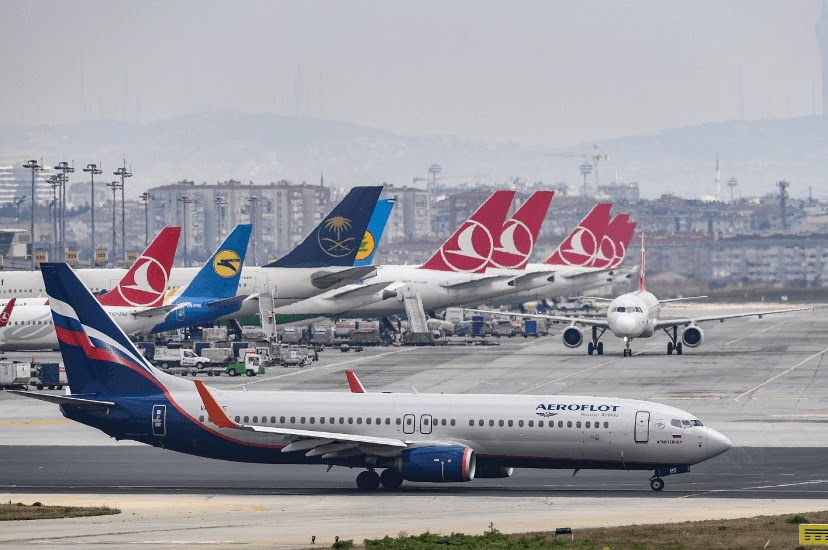Last month, Assistant Secretary of Commerce Thea Rozman Kendler visited Turkey to deliver a warning from senior American officials: Individuals in Turkey could face jail time, fines, loss of export privileges, and other measures if they provide services such as refueling and spare parts for U.S.-made planes traveling to and from Russia and Belarus, which is prohibited by the export controls put in place last year, the officials said.
A stern warning to Turkey from the United States and its allies is being seen as a crucial test of whether Russia can be effectively isolated in the long term or whether Moscow can evade such measures with the assistance of third parties whose involvement is essential to the Kremlin's plan of forging ties with non-Western states. The Turkish Foreign Ministry declined to comment on the warning when contacted.
"At a certain point, they will have to take an enforcement-related action," said Emily Kilcrease, a former deputy assistant U.S. trade representative and currently a senior fellow at the Center for a New American Security in Washington.
"Otherwise, the whole kind of thing falls apart if it turns out they have knowledge of violations, and they haven't been able to do anything to address it."
The Department of Commerce declined to speak on the specifics of the matter, however, a spokesperson from the agency's Office of Export Enforcement recently issued a warning to foreign aviation companies about abiding by U.S. export control regulations when servicing commercial aircraft from Russia, Belarus, and Iran.
"This action and ongoing engagement like Assistant Secretary Kendler's visit is important to U.S. efforts to ensure understanding of our controls, encourage partnership and compliance, and to share information," the spokesperson said.
In February 2022, the Biden administration placed export controls on aircraft manufactured in the United States in response to the attack on Ukraine. This means that no aircraft made in the U.S. or containing more than 25% U.S.-controlled parts can fly into Russia or Belarus without a license granted by the Commerce Department's Bureau of Industry and Security.
Despite attempts by the U.S. and EU to stop the operation of Boeing Co. jets in Russia, the country's airlines have continued to fly them. The efforts have included sanctions barring Russian-operated jets from entering Western skies, cutting off the supply of spare parts necessary for the planes' maintenance, and canceling aircraft-leasing contracts.
Since October 1st, Russia and Belarusian airlines - notably Aeroflot, which is majority-owned by the Russian state - have been operating over 2,100 flights to Turkish destinations such as Istanbul, Izmir, and Antalya, using U.S.-made planes, including Boeing 777s, 757s, and 737s.
Amidst the one-year anniversary of Russia's full-scale assault on Ukraine, the U.S. government has stepped up its sanctions against the country. Seeking to reduce Russia's access to funds and technology for military use, it is now pressuring countries with economic ties to Moscow, like Turkey and the UAE, to comply with the sanctions.
Safety concerns are being raised as Russian flights continue due to Washington's ban on the sale of spare parts needed to repair Russia's civilian airline fleet. Most of these aircraft are made by Boeing and Airbus and were leased from companies in Ireland and Bermuda. Last March, President Vladimir Putin signed a law allowing Russian airlines to re-register their planes in Russia, making them more difficult to repossess.
Also read: Russia allows in-house production of aircraft parts to keep its Airbus and Boeing fleets operational
According to international aviation records, multiple planes operated by Russian airlines on flights to and from Turkey had their registration numbers changed last year.
According to international aviation records, multiple planes operated by Russian airlines on flights to and from Turkey had their registration numbers changed last year.

